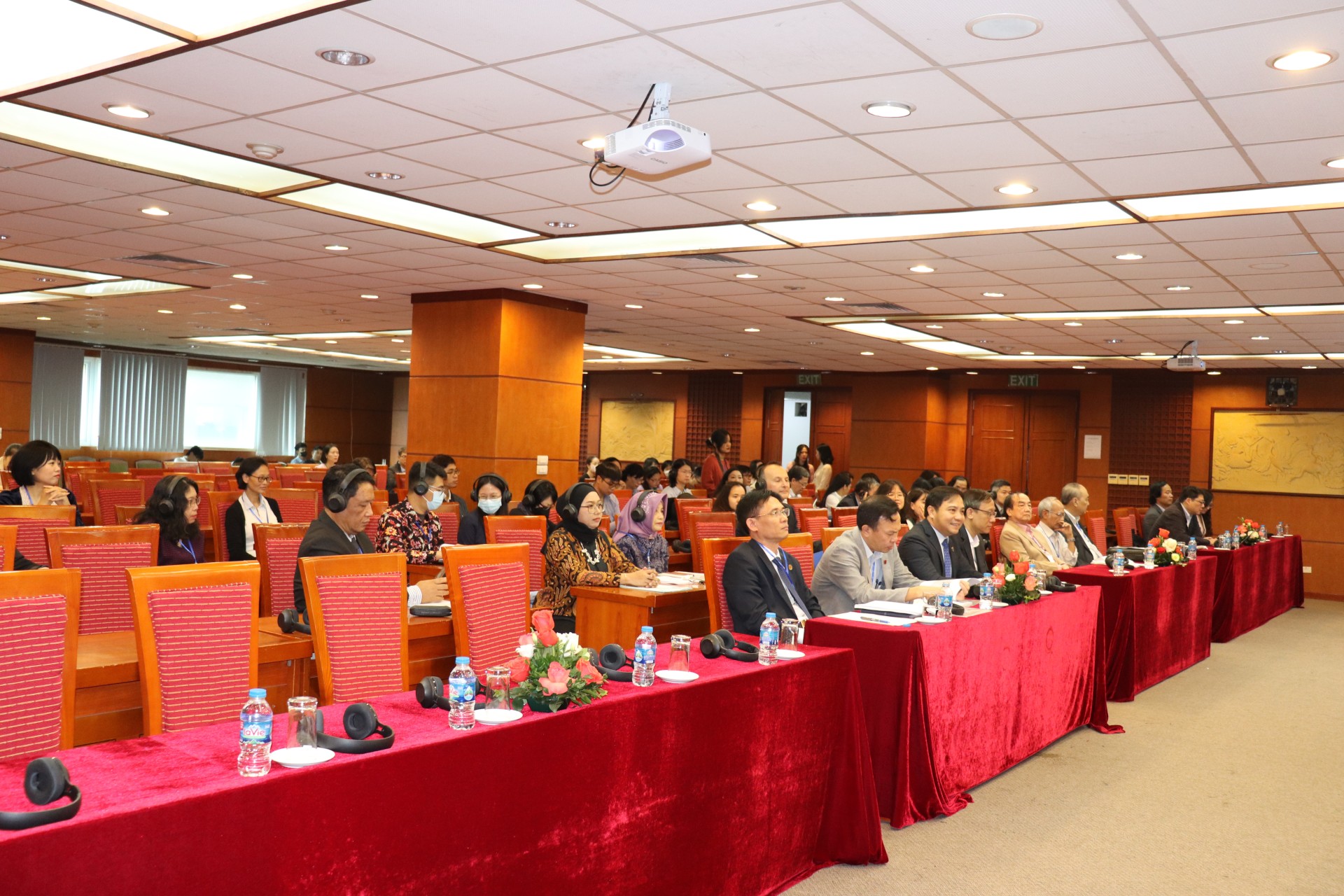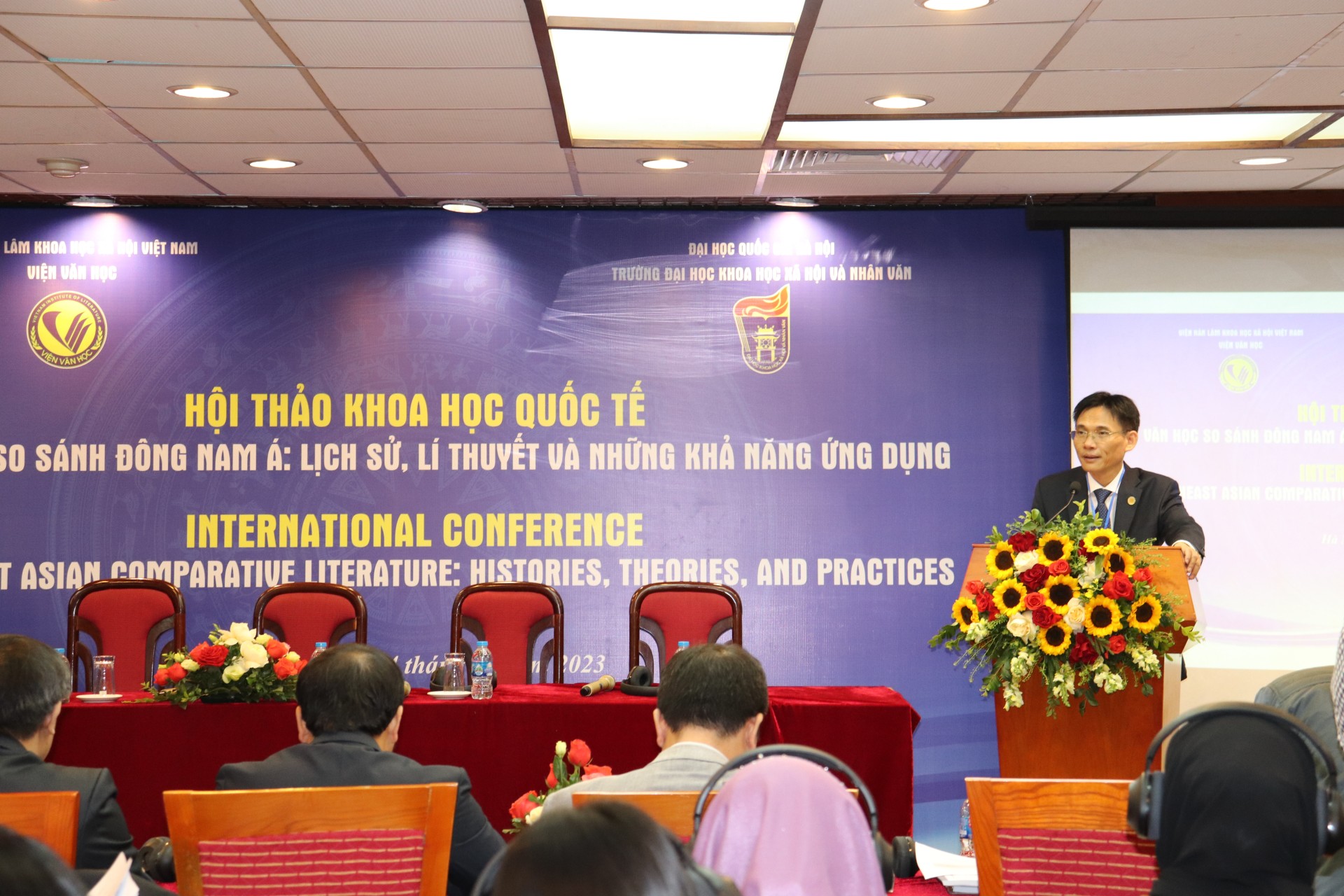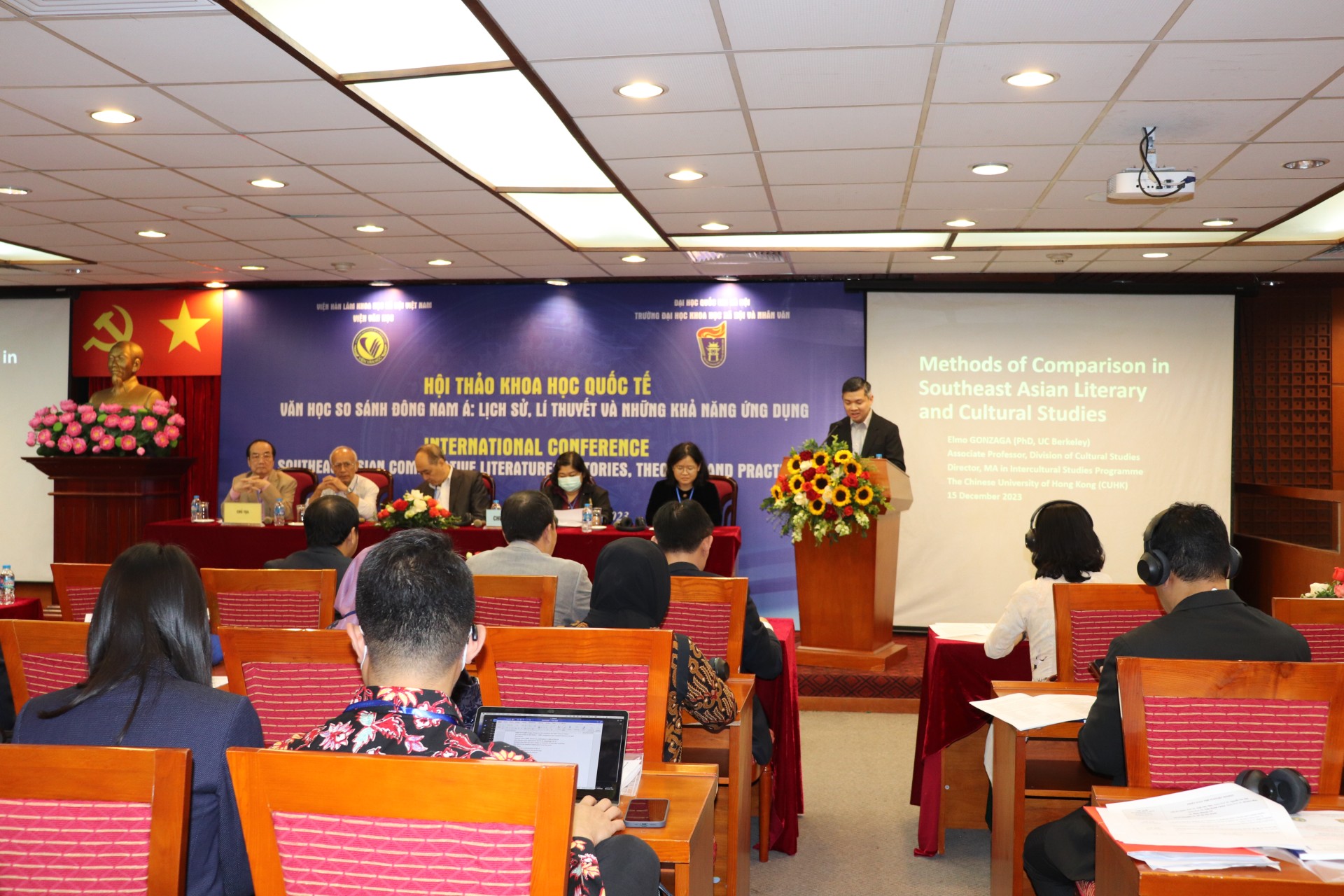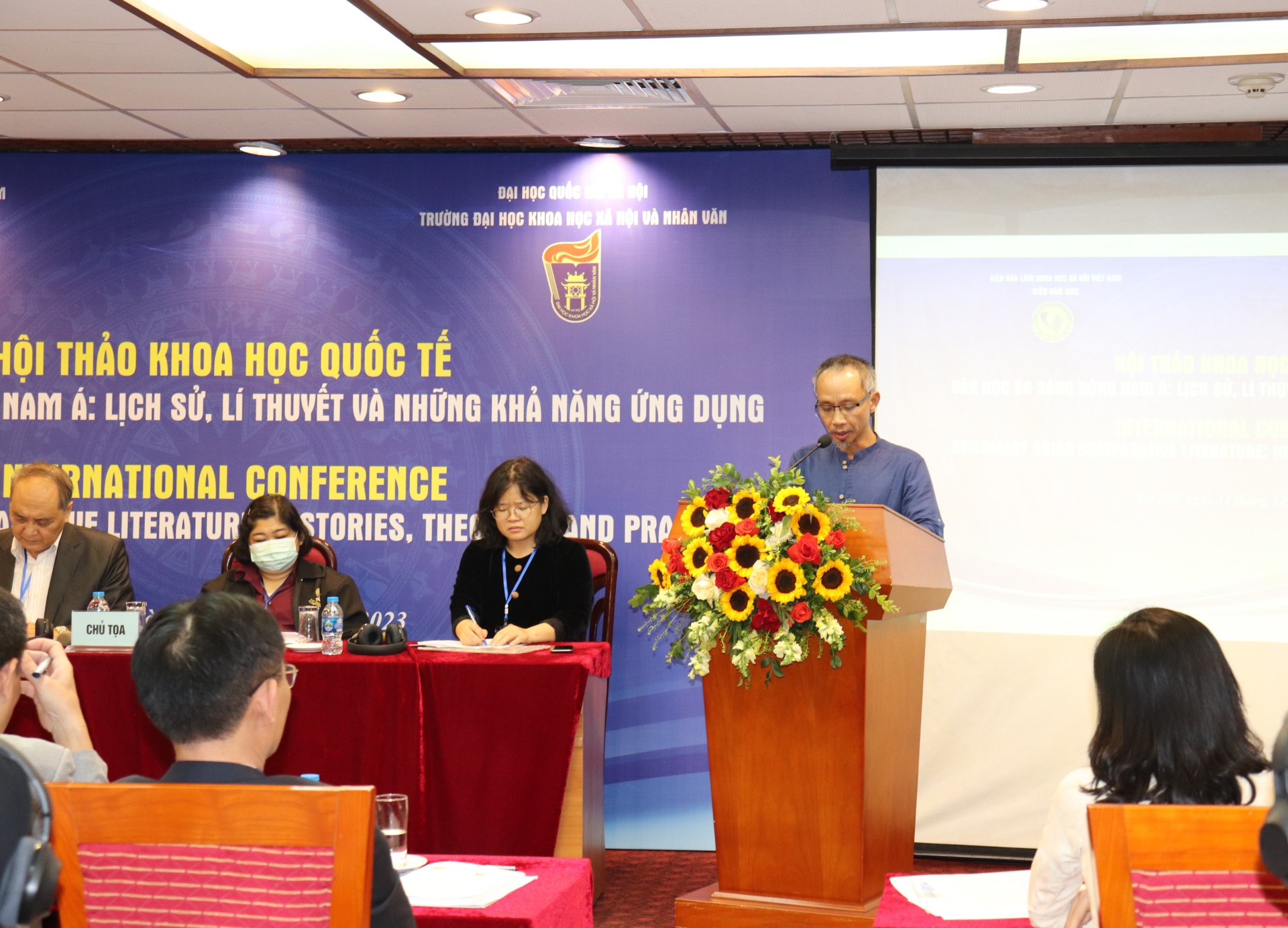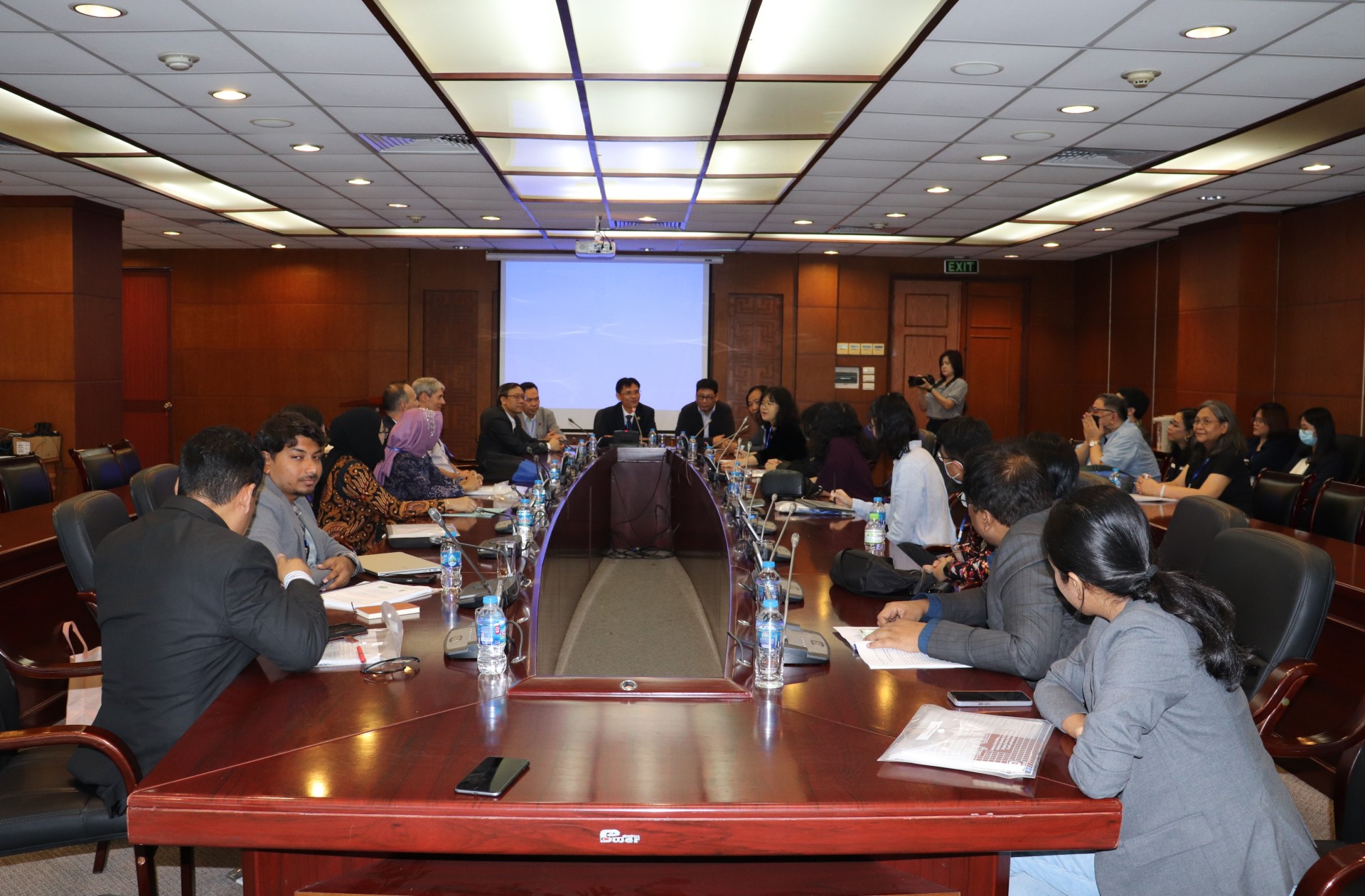The workshop was attended by leaders from the Vietnam Academy of Social Sciences, the Institute of Literature, the University of Social Sciences and Humanities, and many scientists and research experts from major universities across the country.
Notably, the conference attracted the interest and direct participation of 23 scholars from the United States, China, India, France, Germany, Italy, the United Kingdom, and Southeast Asian countries.
In his opening remarks at the workshop, Associate Professor Dr. Nguyen Duc Minh, Vice President of the Vietnam Academy of Social Sciences, stated that Southeast Asia is currently a crucial region in terms of economics, politics, defense, security, and culture. It is also a place where many different cultural influences converge, interact, and localize. In Vietnam, comparative literature theory has only received attention in recent decades. Along with the process of integration, research on Southeast Asian culture and literature has also been intensified in Vietnam. In this trend, research and teaching on Southeast Asian literature require appropriate shifts in perspective, approach, theory, and practical capabilities.
The Vice President of the Vietnam Academy of Social Sciences delivered the opening remarks at the conference.
The Vice President of the Vietnam Academy of Social Sciences also expressed hope that the workshop would be an opportunity for scientists to find solutions to promote research and
teaching literatureComparative literature in Vietnam. This will lead to the formation of an annual academic forum on Southeast Asian comparative literature to update topics, approaches, and share new experiences in this field of study in the region.
According to Dr. Tran Thien Khanh, Deputy Director of the Institute of Literature and Head of the Organizing Committee of the Conference, Southeast Asia has not been included in historical works on the development of literature worldwide. The absence of Southeast Asian literature in comparative literature studies has attracted attention from many scientists and academic institutions around the world; however, this deficiency has mostly been discussed by Western literary researchers. Practicing comparative literature will help us not only gain a deeper understanding of our national literature but also broaden our perspective on the literature of other regions, promoting the exploration, evaluation, and interpretation of the connections between literatures and cultures in the context of increased exchange and integration.
Representing the co-organizing unit, Associate Professor Dr. Dao Thanh Truong, Vice Rector of the University of Social Sciences and Humanities, emphasized: Southeast Asia is a distinct geographical, historical, cultural, and political region. The literature of Southeast Asian countries always expresses the unique national identity and culture of each nation within the overall development and cultural and political interactions of the region. However, this body of literature has not yet occupied a significant position in the global literary landscape.
The conference "Comparative Literature of Southeast Asia: History, Theory, and Practice" is a truly prestigious academic event, fostering connections among scholars both domestically and internationally who share an interest in comparative literature of Southeast Asia. The conference provides an opportunity to propose new approaches in comparative literary science by delving into the interaction between Vietnamese, Southeast Asian, and world literatures in the context of international integration. This international conference also offers the chance to examine Southeast Asian literary works, particularly modern and contemporary works, in comparison and reference to discuss national, cultural, social, and historical issues of Southeast Asia from the perspective of modern theories. The University of Social Sciences and Humanities has a long tradition of nearly 80 years in training and research in the fields of social sciences and humanities. The Faculty of Literature is also one of the three original faculties of the University, a place where many leading politicians, scholars, and literary researchers of Vietnam have studied, researched, and grown. In the future, we are always ready to connect and cooperate with domestic and international organizations to organize academic exchange activities, seminars, and scientific conferences on Vietnamese literature and literature from around the world.
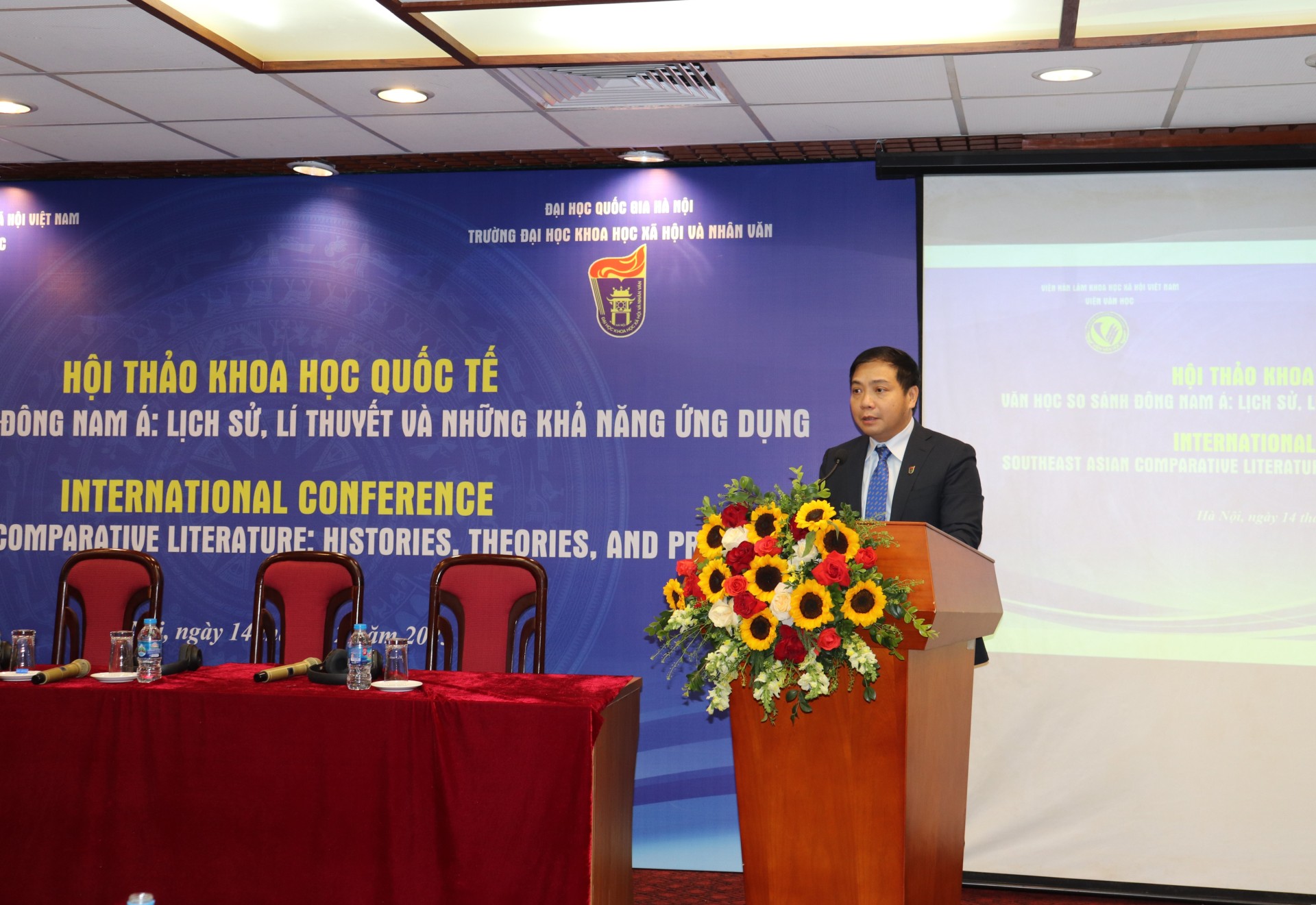
Vice Rector Dao Thanh Truong delivered a speech at the conference.
The conference, held over one day, included a plenary session and ten subcommittees, with 73 presentations in both English and Vietnamese. Many interesting scientific ideas about Southeast Asian literature, in their interrelationships and comparisons with other literatures around the world, were presented, shared, and discussed. The reports by researchers at the conference clarified several key issues such as: the Southeast Asian context of literary creation and interpretation in various countries; the process of constructing national values; the formation of national concepts and the expression of national ideas in each literature within the context of regional literatures; and the national characteristics and universality of Southeast Asian literature, or the indigenous nature of Southeast Asian literatures and the connections and patterns of interrelation between them. How have the classicization of literary works in various countries, and the introduction of theories into their literatures, changed the existing frameworks of literary knowledge? From this perspective, we can uncover new facets of the literature of each country in the region.
By delving deeply into comparative aspects through case studies, researchers both domestically and internationally have offered insights into the potential of comparative literary theory, promoting contingency comparisons in light of interdisciplinary and inter/trans-regional perspectives.
Delegates present reports at the Workshop
Within the framework of the Conference, leaders of the Vietnam Academy of Social Sciences, the Institute of Literature, and the University of Social Sciences and Humanities held a meeting and exchange with international delegates attending the Conference.
The conference is expected to become a significant milestone in the development of comparative literature in general and Southeast Asian comparative literature in particular. In the spirit of open and frank exchange among the participating scholars, several issues concerning the methodology and theory of comparative literature will be clarified through the analysis of the context, practice, history, and literary life of Southeast Asian countries.
The delegates attending the workshop took a commemorative photo.
